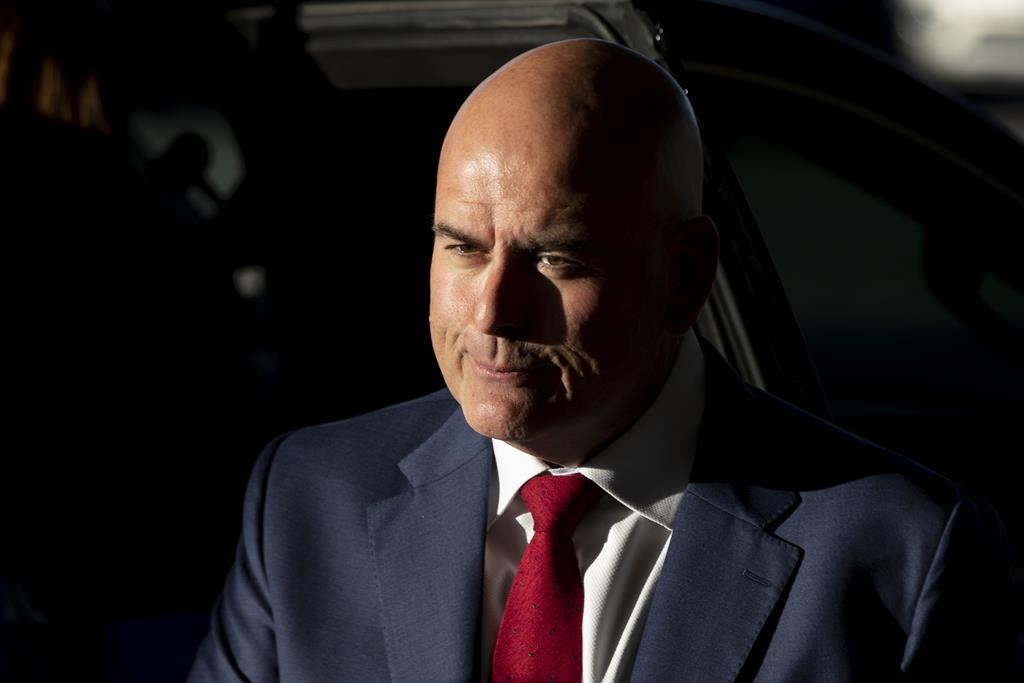TORONTO — Ontario’s Liberals suffered a triple whammy on Thursday, losing their leader after failing to secure official party status once again and placing a distant third in a provincial election that saw the party fail to rebuild from its decimation four years ago.
The Liberals won just eight seats in the province, and leader Steven Del Duca did not win his own riding.
“This isn’t the outcome that we had hoped for, and work hard for,” Del Duca said in a speech delivered in Vaughan, Ont., on Thursday night.
The former Wynne government minister was elected to helm the party days before the first COVID-19 lockdown in 2020.
He tried to connect with voters during the election campaign by including personal touches in his speeches, repeatedly bringing up his two daughters in public schools, two elderly parents who want to age at home, and the grocery shopping he does for his family every weekend.
Ultimately, however, the Liberals secured only one more riding than they won in their historic defeat of 2018.
Del Duca himself was defeated in his riding of Vaughan-Woodbridge, which went to Progressive Conservative candidate Michael Tibollo.
“It’s true, I am disappointed to not have been successful here in my home community,” Del Duca said.
The new leader was not the brand new fresh face the Liberals needed to present to turn the page on the 2018 election results, said Chris Cochrane, an assistant professor of political science at the University of Toronto Scarborough.
“Del Duca was guilty by association having been connected to that government,” Cochrane said.
“There were lots of expressions in the public of people who just didn’t trust the Liberal sentiment. I don’t think it was anything about Del Duca personally, I don’t think it was anything about what he said. It’s just was a hurdle he wasn’t able to overcome in the campaign.”
The Liberal platform included plans aimed at tackling affordability including $1 transit rides and removing provincial HST on prepared foods under $20.
The party also pledged to make COVID-19 vaccinations compulsory for school attendance and boost the minimum wage to $16 per hour by next year.
Cochrane said it was difficult for Del Duca to introduce himself to people in Ontario in the midst of a pandemic and when everybody was thinking about other issues, including inflation, rising cost of living and the war in Ukraine.
“I think he is a perfectly decent person and and has a very good grasp of policy. I thought he did well in terms of coming across as an honest and decent and transparent person in the leadership debate,” he said.
“But he didn’t have … those easily recognizable characteristics that somebody like Doug Ford has.”
Andrew Steele, a strategist and former top Liberal staffer, said the party has had a lot of resourcing problems that affected it during the election.
Not having party status meant having far fewer funds and resources than its rivals, he said.
Cochrane said the Liberals’ real defeat in this election is that they aren’t in a better position than where they were four years ago.
It won’t be easy for them to reintroduce themselves as a party that can form the government, he said.
“They they have a real uphill battle,” he said.
“Not just do they have to hope that the Conservatives falter … But they also have to hope that they’re the party voters turn to to replace them and it’s not obvious that that’s going to be the case.”
This report by The Canadian Press was first published June 2, 2022.



